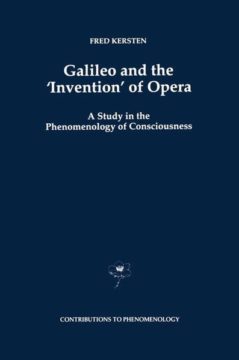Intended for scholars in the fields of philosophy, history of science and music, this book examines the legacy of the historical coincidence of the emergence of science and opera in the early modern period. But instead of regarding them as finished products or examining their genesis, or `common ground‘, or `parallel‘ ideas, opera and science are explored by a phenomenology of the formulations of consciousness (Gurwitsch) as compossible tasks to be accomplished in common (Schutz) which share an ideal possibility or `essence‘ (Husserl). Although the ideas of Galileo and Monteverdi form the parameters of the domain of phenomenological clarification, the scope of discussion extends from Classical ideas of science and music down to the beginning of the nineteenth century, but always with reference to the experience of sharing the sociality of a common world from which they are drawn (Plessner) and to which those ideas have given shape, meaning and even substance. At the same time, this approach provides a non-historicist alternative to understanding the arts and science of the modern period by critically clarifying the idea of whether their compossibility can rest on any other formulation of consciousness.
- Veröffentlicht am Mittwoch 15. Dezember 2010 von Springer Netherland
- ISBN: 9789048148479
- 282 Seiten
- Genre: 20., 21. Jahrhundert, Hardcover, Philosophie, Softcover
